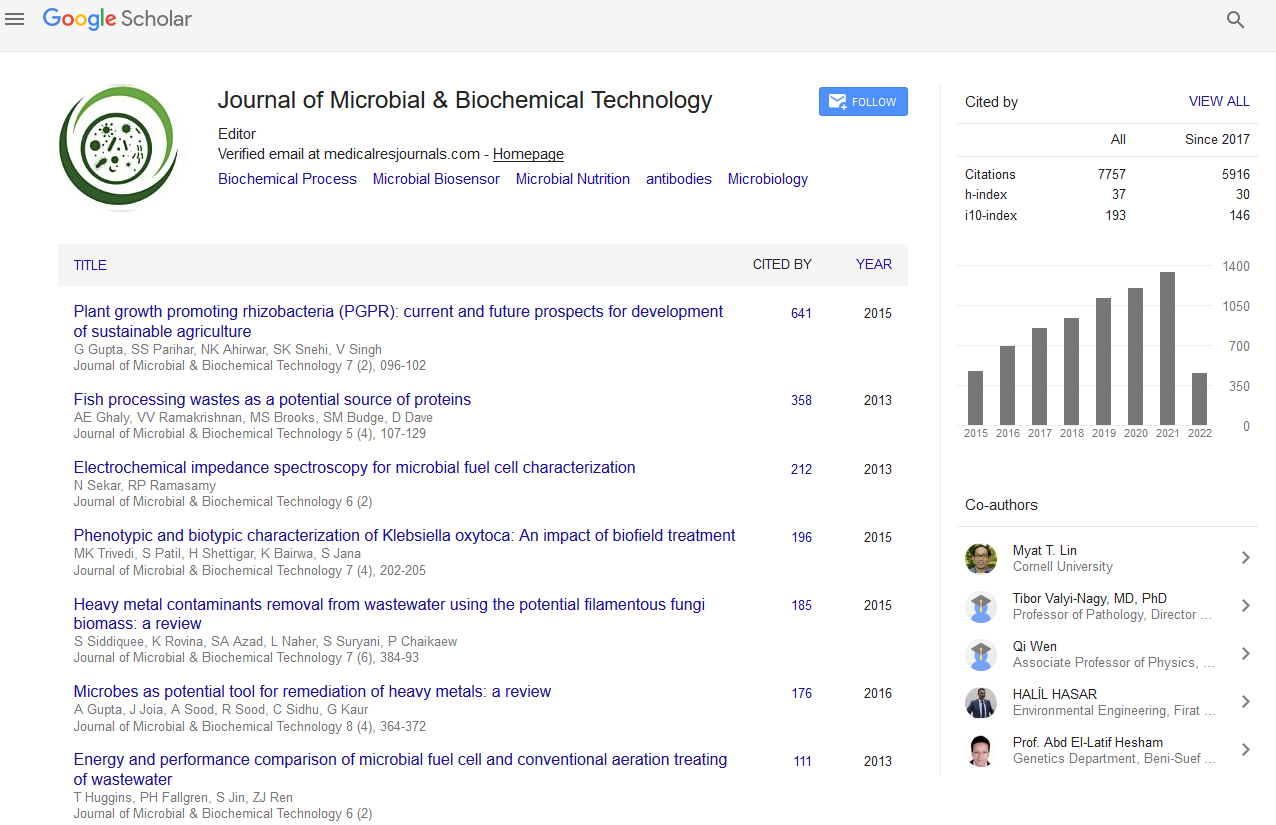PMC/PubMed Indexed Articles
Indexed In
- Academic Journals Database
- Genamics JournalSeek
- Academic Keys
- JournalTOCs
- China National Knowledge Infrastructure (CNKI)
- Scimago
- Access to Global Online Research in Agriculture (AGORA)
- Electronic Journals Library
- RefSeek
- Directory of Research Journal Indexing (DRJI)
- Hamdard University
- EBSCO A-Z
- OCLC- WorldCat
- SWB online catalog
- Virtual Library of Biology (vifabio)
- Publons
- MIAR
- University Grants Commission
- Geneva Foundation for Medical Education and Research
- Euro Pub
- Google Scholar
Useful Links
Share This Page
Journal Flyer

Open Access Journals
- Agri and Aquaculture
- Biochemistry
- Bioinformatics & Systems Biology
- Business & Management
- Chemistry
- Clinical Sciences
- Engineering
- Food & Nutrition
- General Science
- Genetics & Molecular Biology
- Immunology & Microbiology
- Medical Sciences
- Neuroscience & Psychology
- Nursing & Health Care
- Pharmaceutical Sciences
The role of the 4-HTHDPS gene family in symbiotic and abiotic stress responses in plants of the Fabaceae family
CO-ORGANIZED EVENT: International Conference on Chronic Diseases & 6th International Conference on Microbial Physiology and Genomics
August 31-September 01, 2017 Brussels, Belgium
Raphael Kiekens and Geert Angenon
Vrije Universiteit Brussel, Belgium
Scientific Tracks Abstracts: J Microb Biochem Technol
Abstract:
As the world faces more challenges linked to food security and environmental preservation, the specific characteristics of legumes (Fabaceae) make them important candidates to reach sustainable agriculture. Apart from their high protein content, legumes are relatively rich in the amino acid lysine. Lysine is referred to as an �??essential�?? amino acid, because it cannot be synthesized by humans or monogastric animals and is considered to be the most limiting dietary component in food and feed. The biosynthesis of lysine is tightly regulated by 4-hydroxy-tetrahydrodipicolinate synthase (4-HTHDPS), our candidate gene (family) of interest. Recently the 4-HTHDPS gene family of the model legume plant Medicago truncatula was analyzed, which led to the discovery of novel, legume specific, 4-HTHDPS genes with multiple amino acid substitutions on positions previously shown to be involved in feedback inhibition and of residues important for catalytic activity, possibly affecting the enzymatic properties of these isoforms. Furthermore, these newly discovered isoforms seem to be specifically upregulated in roots colonized with mycorrhizal fungi or infected with pathogens, thus suggesting a role for these 4-HTHDPS genes in pathogenesis in legumes. By use of natural variation, publically available - and induced CRISPR/Cas9 mutants, we want to elucidate the functions and interplay of all 4-HTHDPS isoforms within the aspartate metabolic pathway together with its role in symbiosis with Rhizobia and (a)biotic stress responses in Fabaceae.
Biography :
Raphaël Kiekens is a Researcher at the Plant Genetics Lab of the VUB (Vrije Universiteit Brussels). He was a Former Researcher at the Plant Systems Biology Lab of UGent-VIB working on natural variation of the cell cycle in Arabidopsis thaliana and taught Bioinformatics for several years at the University College in Bruges (Howest).


